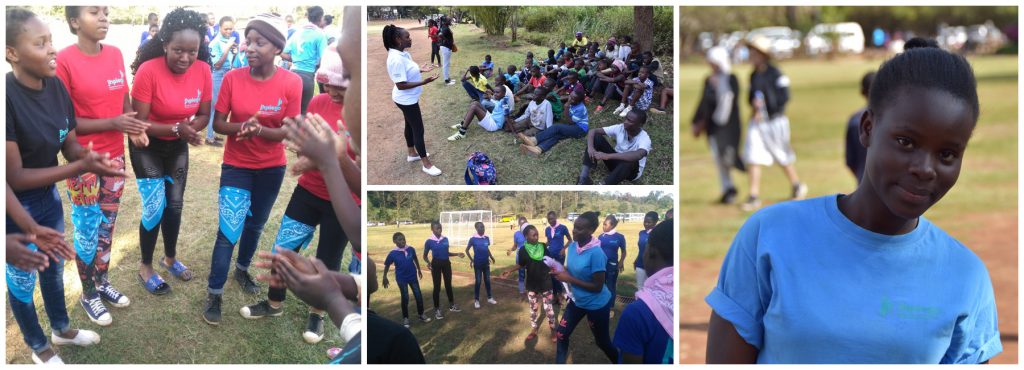In Kenya’s informal settlements, it’s tough being a girl.
Before Kuza, I used to talk with boys for various reasons. I would go to them, maybe they could give me money. I go buy clothes, support myself, so that I can be like a slay queen.
Before I joined Kuza, I never missed a party… We took soft drinks, but they were laced with alcohol, without your knowledge, and when you get drunk, you are not aware of what is happening. You have unprotected sex. You do not know who you are having sex with.
Nairobi, Kenya—Growing up in the Korogocho slum here, Samantha and Nicole came face to face with questions they were ill-equipped to answer and challenges they weren’t ready to face. Parties. New expenses. Sex.
Sounds like girlhood everywhere, right?
“When somebody is not aware of who they are and don’t understand their purpose, it will be really easy to give into temptation” or fall victim to unhealthy relationships, habits and activities their peers and community have normalized, says Judith Ochieng, a mentor in Kuza Club. Judith knows Sam and Nicole well. She spends every Saturday with the two girls and their peers in Kuza Club, which means “nurturing” in Swahili.

Girls in Kuza Club have the opportunity to talk about the pressing health issues they may face—HIV top among them. In sub-Saharan Africa, four in five newly infected adolescents ages 15–19 are girls. Young women ages 15–24 are twice as likely to be living with HIV than men.
They also have a chance to talk about their personal goals and make plans about how to achieve them.
Since 2016, in collaboration with the Ministry of Health, Jhpiego has supported more than 800 girls living in informal settlements around Nairobi to develop the self-esteem, power and strategies to deal with the challenges they face from their families, friends and community.
“The main reason for Kuza is to have girls delay their sexual debut,” says Judith. “You do that by engaging them in activities, by educating them about their sexual and reproductive health and rights, in education sessions. Life skills and self-awareness.” She’s just one of the 120 mentors trained as a part of the Kuza program, which is led by Jhpiego.
Girls who drop out of school or become pregnant put their health at risk and miss opportunities to attend college, choose a career and gain independence. They’re also at a higher risk of gender-based violence.
But in Kuza Club, girls are learning how to overcome these barriers and set themselves up to reach their dreams. The club combats myths—of “papas,” the Kenyan equivalent of a sugar daddy, and “slay queens,” a provocative, life-of-the-party young woman—and helps empower girls to take control of their lives and livelihoods.
Kuza mentors increase young girls’ ability to make positive decisions to impact their future. Girls learn to be assertive, speak their mind about issues that concern them and seek out social support to achieve their plans. Kuza Club participants learn financial literacy, how to save money, and manage their lives. They can also learn a trade, like bead making or sewing, to earn income.
I used to walk at night, but now you will never find me walking at night. The boys I used to freely socialize with, now I don’t. I choose my friends carefully. If a boy wants to have sex with you, you say no confidently, and you mean it.
I learned about self-esteem. Most boys in our area know I will turn them down when they flirt with me. I know myself. I have a goal—only one: I want to become a surgeon. I have to be best. And I want to be a real queen, not a slay queen.
Parents, educators and peer mentors have reported that girls participating in Kuza Clubs are:
- More empowered to say “no” to bad decisions and bad company
- Better equipped for frank conversations with their parents
- Improving their performance in school
- Reducing their chances of an unintended teenage pregnancy
“All of the girls have delayed their sexual activity,” says Judith. “We learned about premarital sex and education. Which do you go for first? I made them understand the benefits—you go to school first.”
Kuza Clubs are setting hundreds of girls like Sam and Nicole on the path to health and, just as importantly, to help them achieve their goals—whether surgeon, college graduate, mother or anything else they can dream up.
This story was a collaborative effort by Jhpiego’s Janet Akech and Jane Otai, with videography and photography by Ronald Dangana.



